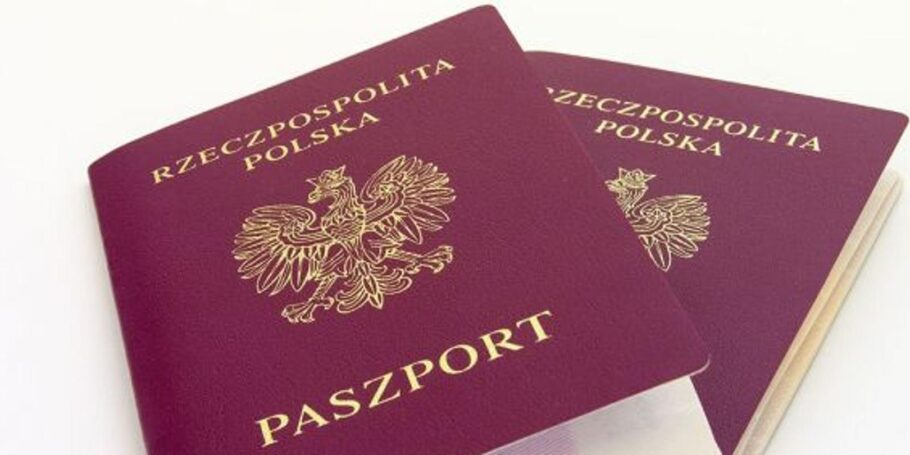Polish Citizenship Act: changes in light of draft amendments (tax residence and the “four pillars”). It may not be easier…
Taxes / 5 November 2025

Three draft amendments to the Polish Citizenship Act, currently at various stages of the legislative process, are the subject of legislative work. Although they have been presented by intensely competing political camps and centres of power, it is possible to identify the basic assumptions common to all drafts, which boil down to establishing more stringent rules for obtaining Polish citizenship.
Foreigners in Poland and the Polish Citizenship Act: challenges for migration policy
For several years now, Poles have been experiencing a phenomenon that until recently was considered specific to the wealthy countries of Western Europe: economic migration. Poland is gradually transforming from a country of emigration to one of immigration, offering foreigners prospects for professional development. This applies primarily to people from African and Asian countries, which is causing concern among some members of the public. The situation observed in countries such as the United Kingdom, France, Germany and Sweden raises questions about the importance of cultural differences for the integration of foreigners in their new homeland. Recent changes in the regulations governing the employment of foreigners reflect a more cautious approach to migration policy in Poland (we wrote about this on our blog: https://lexplorers.pl/realia-zatrudnienia-i-pracy-tymczasowej-cudzoziemcow-po-1-czerwca-2025-r-zakaz-outsourcingu-pracowniczego-i-nowe-obowiazki-dla-agencji-zatrudnienia/).
Following the tightening of the policy on the employment of foreigners in Poland, the proposal to establish more restrictive criteria for obtaining Polish citizenship has become the subject of public debate. These proposals have already taken the form of specific draft amendments to the law.
Ways to obtain Polish citizenship in 2025
We have already written about the paths to obtaining Polish citizenship in one of our previous articles: https://lexplorers.pl/jak-uzyskac-obywatelstwo-polskie/). At this point, it is worth recalling that, pursuant to Article 4 of the Act of 2 April 2009 on Polish citizenship (i.e. Journal of Laws of 2023, item 1989, as amended), Polish citizenship is acquired:
- by operation of law;
- by granting Polish citizenship by the President of the Republic of Poland;
- by recognition as a Polish citizen by the provincial governor;
- by restoration of Polish citizenship by the minister responsible for internal affairs.
In light of the proposed amendments, the list of ways to acquire Polish citizenship will not change, but there will be some pretty significant changes to the specific criteria that foreigners applying for Polish citizenship will have to meet.
Amendments to the Polish Citizenship Act – presidential bill
At one time, the draft amendments to the Polish Citizenship Act presented to the Sejm by the President of the Republic of Poland received a lot of media attention. The head of state proposes to amend Article 30(1)(1) of the Polish Citizenship Act so that the period of uninterrupted residence of a foreigner in the territory of the Republic of Poland on the basis of a permanent residence permit, a long-term resident’s European Union residence permit or a right of permanent residence required to be recognised as a Polish citizen would be 10 years, rather than 3 years as is currently the case.
The draft has been submitted to the Sejm (print no. 1759) and is currently being reviewed by local government organisations.
Amendment to the Polish Citizenship Act: government proposals
The Ministry of the Interior and Administration (MSWIA) also marked its involvement in the debate on changes to the regulations governing the acquisition of Polish citizenship. During a discussion organised by the ministry on 27 October 2025, an approach to amending the Polish Citizenship Act was presented, based on four pillars: length of stay in Poland, loyalty to the Polish state, passing a citizenship test and, interestingly, tax residence. An important role would be played by a citizenship test checking the integration of a foreigner applying for Polish citizenship with Polish society, which would cover knowledge of Polish law, values and history. The period of residence in the Republic of Poland would be extended from the current 3 to 8 years, according to the plans of the Ministry of the Interior and Administration. The extension of the period of stay would also apply to repatriates (up to 1 year) and holders of the Polish Card (3 years), i.e. ethnic Poles, for whom it is difficult to argue cultural alienation.
4 pillars: will Polish tax residence be a condition for obtaining citizenship?
An intriguing legislative proposal by the Ministry of the Interior and Administration is to link citizenship with tax residence, making it one of the “4 pillars” of obtaining Polish citizenship. As we have repeatedly pointed out on the lexplorers.pl blog (e.g. in the context of individual interpretations by the Director of the National Tax Information Service: https://lexplorers.pl/rezydencja-podatkowa-w-holandii-organ-nadinterpretacyjny-w-dzialaniu/), tax residence (unlimited tax liability) is determined independently of citizenship, as it specifies the place where a taxpayer is to settle their income tax (regardless of where it is located). Although having tax residence in Poland certainly indicates a person’s connection with our country and may be included in the broad catalogue of arguments for recognising them as a Polish citizen or granting them Polish citizenship (as consistent with the obligation of citizens to care for the common good: https://lexplorers.pl/polski-paszport-prawa-i-obowiazki-wynikajace-z-bycia-obywatelem/), treating it as a “pillar” of obtaining Polish citizenship seems to be a misunderstanding.
Parliamentary bill amending the Polish Citizenship Act
For the sake of chronicling, it is also worth mentioning the bill submitted in May 2025 by a group of MPs (print no. 1273). It proposes extending the period of uninterrupted residence of a foreigner in the territory of the Republic of Poland from 3 to 10 years, on the basis of a permanent residence permit, a long-term resident’s residence permit, an EU residence permit or a right of permanent residence, required for them to be recognised as a Polish citizen. Given the government’s negative stance and the fact that its content overlaps with the presidential draft, it is unlikely to influence the shape of the potential amendment.
Polish citizenship: how to obtain it?
The lawyers of the Private Client team at GWW provide support in the process of applying for Polish citizenship. For more information about our services related to obtaining Polish citizenship, visit: https://gww.pl/specjalizacje/obywatelstwo-i-rezydencja/.
Author
Aldona Leszczynska-Mikulska
radca prawny, doradca podatkowy
Przypadek czy przeznaczenie? Kilkanaście lat temu przypadek sprawił, że w trakcie studiów prawniczych na Uniwersytecie Warszawskim rozpoczęłam pracę w zespole specjalistów od międz...
Powiązane wpisy
Inheritance and gift tax – continued deregulation. 2025 amendment of the Polish law
Inheritance and gift tax – continued deregulation. 2025 amendment of the Polish lawMLI Convention
MLI Convention
Tax credit for donors – zero VAT rate for entities providing personal protective equipment
Tax credit for donors – zero VAT rate for entities providing personal protective equipmentAlcohol for disinfection as the tax-deductible cost
Alcohol for disinfection as the tax-deductible costObawiasz się,
że ominą Cię
najważniejsze zmiany
w prawie?




